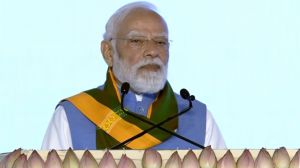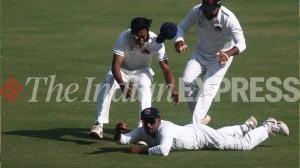Japan’s rebel with a cause in search of a platform
Hidetoshi Nakata may be a superstar in his native land but it is as a supersub that he has made his mark in Italy.The first Japanese player ...

Hidetoshi Nakata may be a superstar in his native land but it is as a supersub that he has made his mark in Italy.
The first Japanese player to establish himself in one of Europe’s top leagues has spent most of the last two seasons on the bench at AS Roma and Parma.
But that has not prevented him from taking centrestage in crucial games.
At Roma, his performances in the 2000-01 championship run-in helped clinch the club’s first league title in 18 years.
Most memorably, Nakata came off the bench to score one goal and make another as Roma overturned a 2-0 deficit to earn a draw with Juventus that was seen as the decisive game of the season.
It was not enough to prevent Nakata being offloaded to Parma last summer and, with his new club struggling, it has been another frustrating season for the Japanese star.
But once again he came good when it really mattered, his away goal securing Parma’s victory over Juventus in the two-leg final of the Italian Cup.
The bigger the stage, the better Nakata seems to perform. At France ’98, Japan lost all three of their matches but their 20-year-old playmaker still caught the eye, a shock of dyed red hair making sure the watching scouts did not miss his evident vision, remarkable speed on the ball and his pinpoint passing.
Perugia saw enough to gamble $3.5 million to bring the 1997 and 1998 Asian Player of the Year to Italy. Two years later they sold him to Roma for 26 million.
That Nakata has not only survived but thrived in the pressure-cooker environment of Serie A for four years is testimony to a fierce individualistic streak that, as much as his exploits on the field, has helped make him a national icon.
At school he was a talented mathematics student and thought one day he might become an accountant. But he was always determined not to be shackled by the constraints of Japan’s salary-man culture. “In Japan, seniority is all important,” he recently told Time magazine. “It is a vertical society. You must constantly pay respect to the person above you. From the time I was a boy, I didn’t feel like this.”
Nakata’s rebel spirit, his constantly evolving hairstyles, vintage jeans and rhinestone-studded sandals have made him a hero of Japan’s new generation of football fans, many of them girls for whom “hide” is the last word in cool.
His personal website gets more than a million hits a day in Japan alone. New Chinese and Korean-language editions were launched last year.
His style has not always been to everyone’s taste however.
Japan’s French coach Philippe Troussier warned earlier this year that Nakata’s “egotistical” attitude could cost him a place in the World Cup. But the Frenchman is also acutely aware that a moment of magic from Nakata could make the difference between first-round survival and elimination and, as the tournament has grown closer, both men have been at pains to play down their differences.
In a recent interview with AFP, Troussier made a point of praising Nakata’s resilience and his status as the team’s leader.
“In four years playing abroad, he’s never been injured and he has the human, tactical and physical potential we are looking for,” he said.
Nakata, meanwhile, has been working hard to prove himself a dedicated team player, taking time out to work with the like of Alessandro Santos, a Brazilian-born winger drafted into the squad just months after obtaining his Japanese citizenship.


- 01
- 02
- 03
- 04
- 05





























